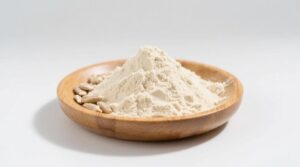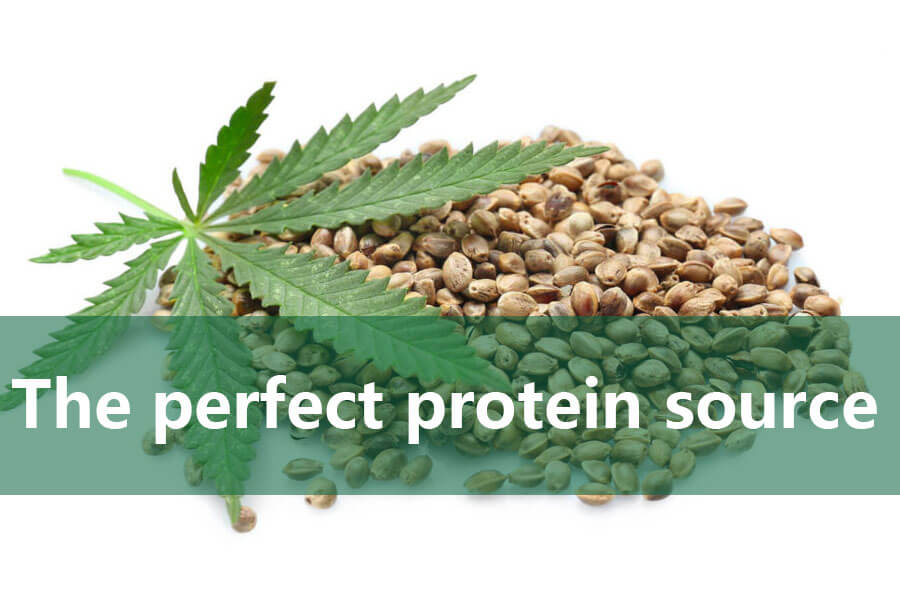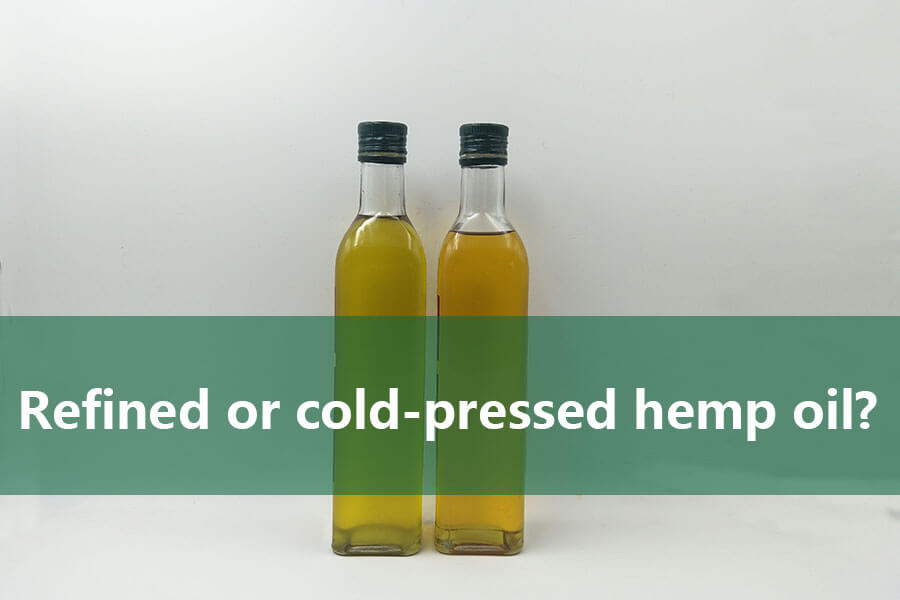As the global demand for clean, sustainable nutrition skyrockets, organic sunflower seed protein powder is emerging as a frontrunner in the $156.3 million sunflower protein market. With its hypoallergenic profile, carbon-negative farming footprint, and unparalleled versatility, this golden ingredient is projected to claim 25% of the plant-protein sector by 2030. Let’s dive into the trends, science, and visionary applications fueling its ascent.
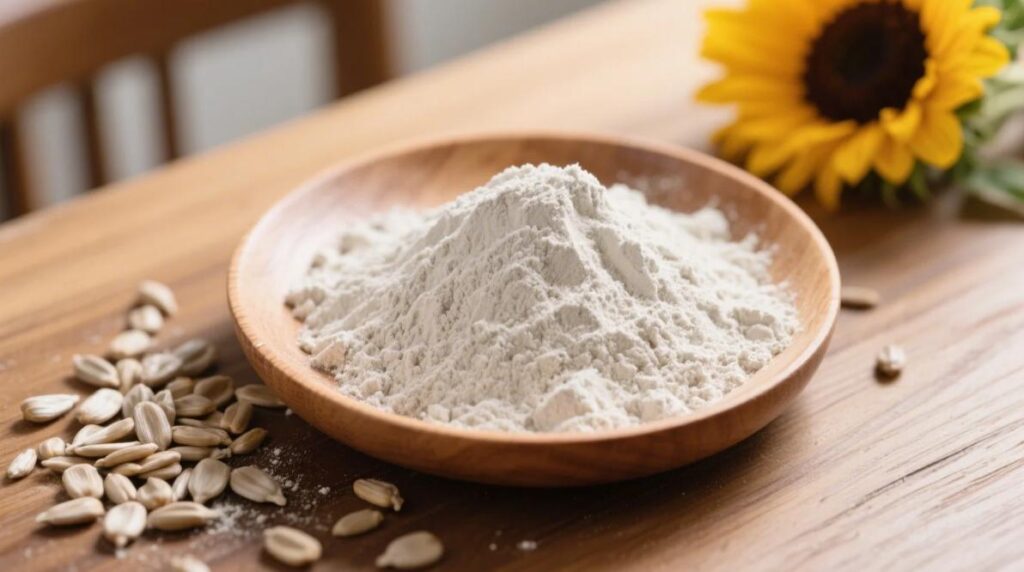
1. Market Drivers: Health, Ethics, and Planetary Wellness
- Vegan Revolution: With 970 million vegans and flexitarians globally, organic sunflower seed protein—free from gluten, soy, and dairy—has seen 45% annual growth in APAC markets like China and India. Its neutral flavor and 50-70% protein purity make it ideal for shakes, meat analogs, and even keto-friendly snacks.
- Functional Nutrition Powerhouse: Rich in magnesium (combats stress), zinc (boosts immunity), and heart-healthy omega-6s, it outperforms pea protein with 80% digestibility. Clinical studies highlight its role in reducing LDL cholesterol and supporting prostate health.
- Carbon-Negative Farming: Sunflower crops absorb 4x more CO2 than forests and thrive in drought-prone regions. Brands like Burcon use blockchain-traceable seeds from regenerative farms in Xinjiang, reducing water use by 30% vs. almonds.
2. Innovation: From Lab to Kitchen
- Bioactive Breakthroughs: Enzymatic hydrolysis and cold-pressing preserve 95% bioactive peptides, enhancing muscle recovery and gut health. Startups like TruSeed® blend it with probiotics for synbiotic supplements targeting metabolic health.
- Culinary Revolution: Chefs leverage its nutty, earthy flavor in gluten-free baked goods, vegan cheeses, and protein-enriched plant milks. Its emulsifying properties are transforming dairy-free ice creams and salad dressings.
- Smart Sustainability: Brands adopt compostable packaging from sunflower husks, slashing plastic waste by 40%. Manitoba Harvest’s AI-driven vertical farms in Inner Mongolia stabilize yields despite climate volatility.
3. Health Benefits: Beyond Muscle Building
- Allergy-Inclusive Nutrition: A lifesaver for those avoiding soy, dairy, or gluten, it’s certified non-GMO and vegan. Studies show it reduces gut inflammation and promotes beneficial microbiome diversity.
- Skin & Longevity Boost: High in vitamin E (1 serving = 80% DV), it combats oxidative stress linked to aging, while magnesium supports bone density.
- Mood & Energy: Tryptophan content aids serotonin production, easing anxiety and improving sleep quality.
4. Challenges & Strategic Wins
- Supply Chain Agility: Climate change threatens yields, but AI-powered irrigation and drought-resistant “giant sunflower” hybrids (4x yield vs. traditional crops) are mitigating risks.
- Regulatory Navigation: Strict USDA/EU organic certifications and THC limits (<0.3%) require blockchain traceability. Brands like ETprotein use ISO 22000-certified facilities to dominate premium markets.
- Myth-Busting Campaigns: Education on its complete amino acid profile (8g EAA per serving) is critical to counter misconceptions about plant proteins.
5. Future Horizons: A $8.2 Billion Ecosystem
By 2030, organic sunflower seed protein will redefine industries:
- Pharma-Nutrition Synergy: Research into its anti-inflammatory peptides could yield nutraceuticals for diabetes and hypertension.
- Circular Economy Leadership: Husk upcycling into biodegradable packaging and biofuels (pioneered by Beijing Green BioTech) aligns with EU’s 2030 palm oil ban.
- Beauty-From-Within: Luxury skincare lines harness its vitamin E for anti-aging serums, targeting 20% of the $90B cosmeceuticals market.
Seeding a Regenerative Future
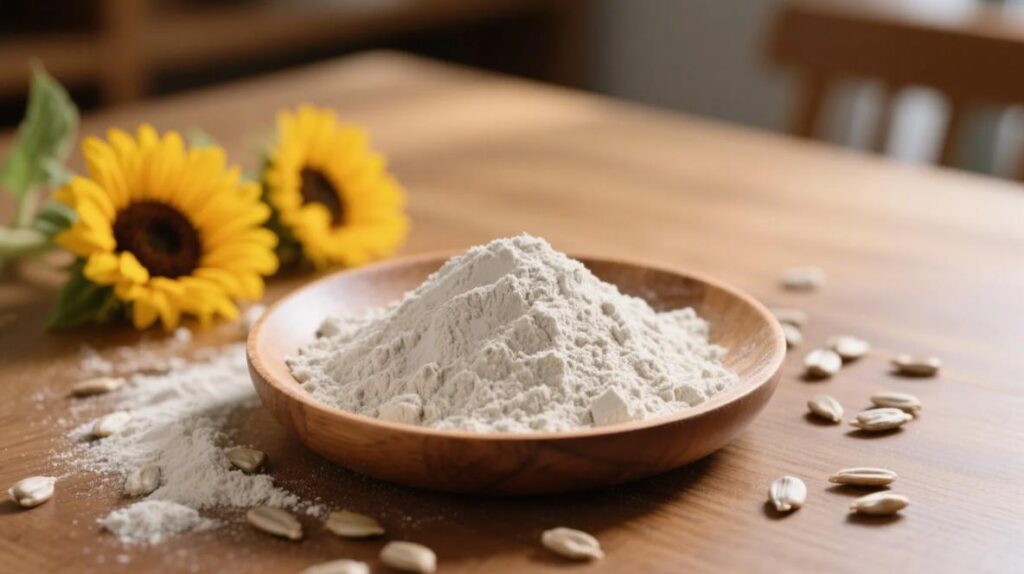
Organic sunflower seed protein powder isn’t just a supplement—it’s a manifesto for ethical, planet-first nutrition. With every scoop, consumers fuel a future where health and sustainability are inextricably linked.
Recommended Product
Organic Sunflower Seed Protein Powder
Organic sunflower seed protein powder offers ≥80% high-quality plant protein with excellent digestibility and hypoallergenic…

